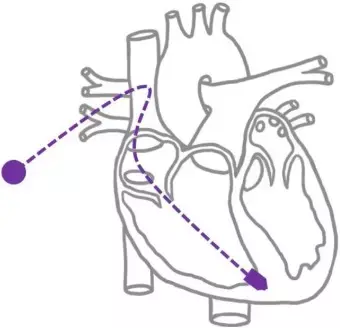- Home
- Medical news & Guidelines
- Anesthesiology
- Cardiology and CTVS
- Critical Care
- Dentistry
- Dermatology
- Diabetes and Endocrinology
- ENT
- Gastroenterology
- Medicine
- Nephrology
- Neurology
- Obstretics-Gynaecology
- Oncology
- Ophthalmology
- Orthopaedics
- Pediatrics-Neonatology
- Psychiatry
- Pulmonology
- Radiology
- Surgery
- Urology
- Laboratory Medicine
- Diet
- Nursing
- Paramedical
- Physiotherapy
- Health news
- Fact Check
- Bone Health Fact Check
- Brain Health Fact Check
- Cancer Related Fact Check
- Child Care Fact Check
- Dental and oral health fact check
- Diabetes and metabolic health fact check
- Diet and Nutrition Fact Check
- Eye and ENT Care Fact Check
- Fitness fact check
- Gut health fact check
- Heart health fact check
- Kidney health fact check
- Medical education fact check
- Men's health fact check
- Respiratory fact check
- Skin and hair care fact check
- Vaccine and Immunization fact check
- Women's health fact check
- AYUSH
- State News
- Andaman and Nicobar Islands
- Andhra Pradesh
- Arunachal Pradesh
- Assam
- Bihar
- Chandigarh
- Chattisgarh
- Dadra and Nagar Haveli
- Daman and Diu
- Delhi
- Goa
- Gujarat
- Haryana
- Himachal Pradesh
- Jammu & Kashmir
- Jharkhand
- Karnataka
- Kerala
- Ladakh
- Lakshadweep
- Madhya Pradesh
- Maharashtra
- Manipur
- Meghalaya
- Mizoram
- Nagaland
- Odisha
- Puducherry
- Punjab
- Rajasthan
- Sikkim
- Tamil Nadu
- Telangana
- Tripura
- Uttar Pradesh
- Uttrakhand
- West Bengal
- Medical Education
- Industry
Rare case of Bullet injury and it's embolization to heart: A report

Courtesy International Journal of Surgery Case Reports
USA: Gunshot wounds (GSWs) to the cardiac region usually result in devastating injuries. A recent case study in the International Journal of Surgery Case Reports, discusses cases of bullet embolization to the heart and the emergence of minimally-invasive approaches for management. The researchers present the case of a 37-year-old hemodynamically stable young male who suffered a Gunshot wound to the right chest.
The man with no significant medical history presented to a level 1 trauma center as a level 1 trauma activation after suffering a single Gunshot wound to the right anterior chest just lateral to the midclavicular line at approximately the level of the fourth thoracic vertebra.
Computed Tomography (CT) scan performed because of his stability, demonstrated a bullet in close proximity to the heart. Sternotomy revealed bullet embolization through the superior vena cava (SVC) to the right ventricle that then embedded in the apical endocardium, obviating safe retrieval.
The bullet had embedded through the endocardium into the deep myocardium, and retrieval would have likely necessitated cardiopulmonary bypass with extensive cardiac dissection.
The decision was made to leave the bullet in place, and the ventriculotomy was repaired and the chest closed. The patient had an uneventful recovery. At a 3-month follow up, the bullet had not changed position on chest x-ray.
"This review of the literature suggests that the initial management of hemodynamically stable patients with suspected intracardiac bullet emboli can be non-operative. The management should include intensive care observation along with transesophageal echocardiography to better-localize the bullet. Considering endovascular approaches with preparation for possible open operative intervention is a valid alternative that carries a higher risk of morbidity and mortality, in comparison to non-operative management," wrote the authors.
Intracardiac bullets can be left in place, with no significant impact -- is the key takeaway from the study.
Nearly 90% of patients with cardiac bullet emboli on initial presentation are hemodynamically stable.Non-operative management of stable patients includes intensive observation and additional imaging to localize the bullet.
"Bullet embolization to the heart: A rare and confounding penetrating cardiac injury case report," is published in the International Journal of Surgery Case Reports.
Dr Kamal Kant Kohli-MBBS, DTCD- a chest specialist with more than 30 years of practice and a flair for writing clinical articles, Dr Kamal Kant Kohli joined Medical Dialogues as a Chief Editor of Medical News. Besides writing articles, as an editor, he proofreads and verifies all the medical content published on Medical Dialogues including those coming from journals, studies,medical conferences,guidelines etc. Email: drkohli@medicaldialogues.in. Contact no. 011-43720751


